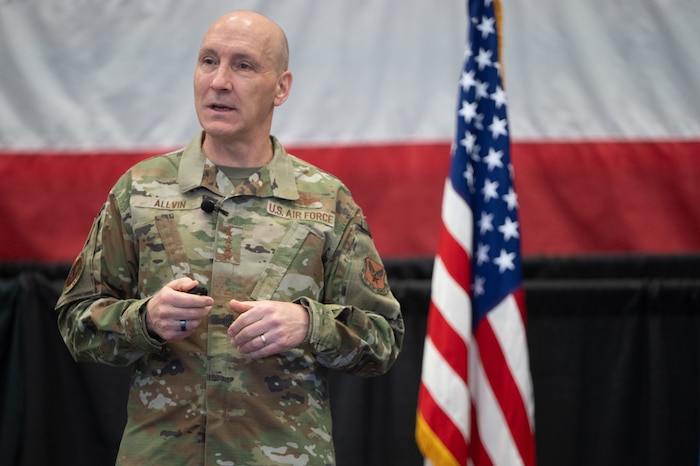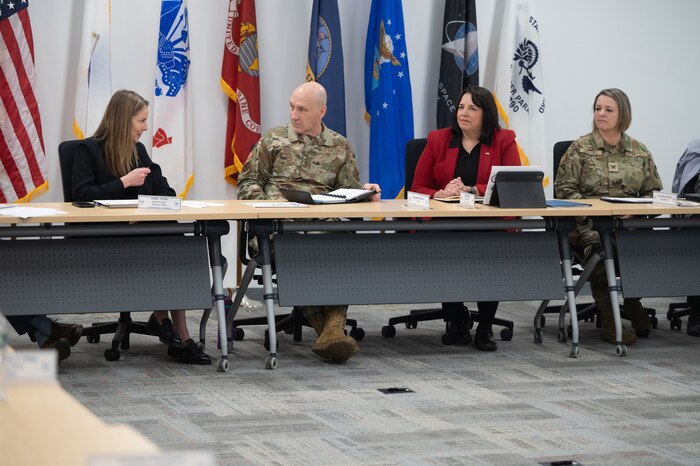Air Force Chief of Staff Gen. David Allvin's focus since his tenure began has been his "Case for Change" message on optimizing the Air Force for Great Power Competition.
An all call at Hanscom Air Force Base, Massachusetts, on May 8 was no different. He emphasized it is not practical to wait until it feels comfortable to incorporate what is needed to adapt in a time of consequence.
"I believe what we do matters more than any other time in my career," Allvin said. "I want to get the word out as much as I can. We can't change course until we are on course, and you can't be on course until you move."
The last GPC was during the Cold War, and changes to meet the challenges of different strategic environments since then have resulted in the fragmented nature of today's force. "Back then," Allvin said, "roles were more clearly defined."
The pace of change is now occurring at breakneck speed, which Allvin said will require Airmen to stay on the balls of their feet to keep up their edge.
The Department of the Air Force's re-optimization initiative, announced publicly in February, is designed to align the force to take on evolving threats more effectively. The "Case for Change" highlights the need to unify planning and operations.
Allvin put it all into context within four core areas - projection of power, development of people, generating readiness, and developing capabilities - to move toward "the Air Force of tomorrow."
He said power projection and generating readiness are areas in which change should be visible in the next year or two.
"Generating power as a holistic unit is something we need to get back to," Allvin said. "We need to train as wings, pick it up and say, this is what it will look like. We need to reorient our muscle memory on how to do that."
The development of people, for instance, became more regionalized and skill-specific during the 1990s. This course, Allvin said, should be altered so all Airmen have the same tools.
"The development of the force was more fragmented," Allvin said. "There came to be a great number of functional managers, and the distribution of information among a large number of managers will cause confusion."
"We need to make sure they are somewhat standardized; one commander will be responsible with overseeing standardization and the development of tools."
Air Force Materiel Command, of which Hanscom AFB is a part, will play a key role in terms of capability development.
As part of his visit, Allvin met with Hanscom AFB program executive officers for an overview briefing highlighting their successes, challenges and how they are adapting to support GPC. He also participated in a roundtable event with the installation's key state, academic and innovation partners. The discussion focused on how Hanscom leaders are leveraging partnership opportunities across Massachusetts to help meet mission needs, develop Airmen, and achieve GPC goals.
Allvin noted change is difficult, but that not embracing it will result in grave consequences.
"When a major event rocks this world, we will ask ourselves, 'did we try to make this change?' That is something I want to think about," he said. "We need to lean into it, take risks and prepare for the future. My charge to you is to take a look and see if this is something you want to do."








